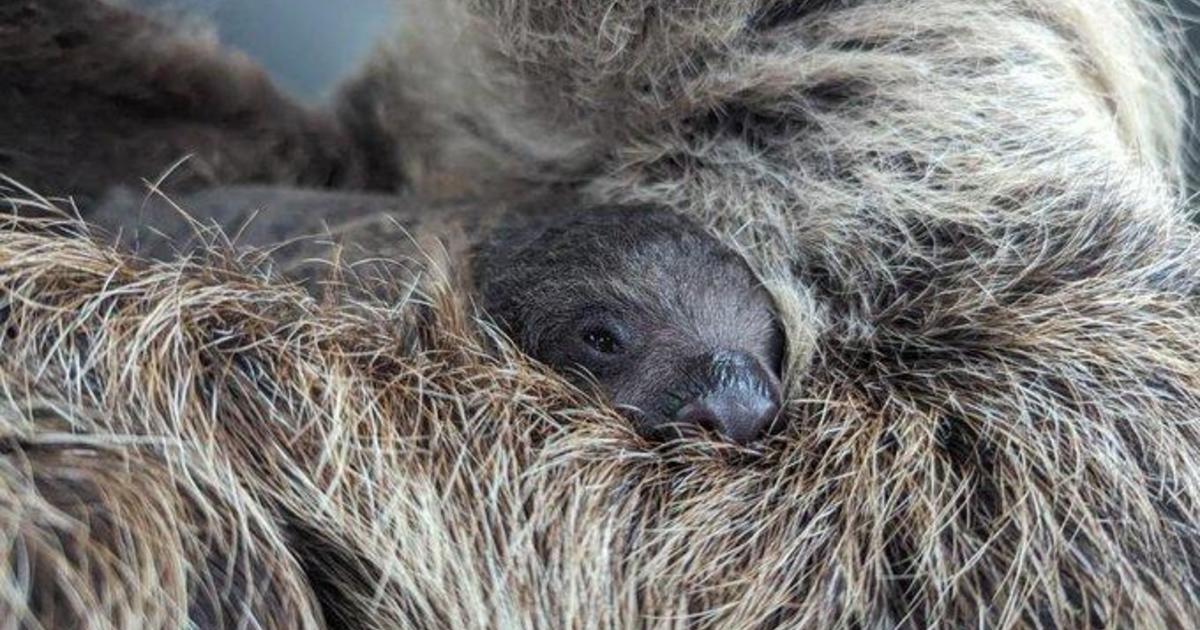Prosecutors: State Must Compensate The Exonerated
GRAND JUNCTION, Colo. (AP) - When Robert Dewey walked out of prison a free man after more than 16 years of being imprisoned for a murder he didn't commit, he left empty-handed.
He wasn't given the $100 debit card that parolees receive on release. He wasn't offered shelter in a halfway house, as the guilty who have served their time are. He wasn't directed to any job training or educational resources.
In Colorado, there is no compensation and no help of any sort for those who have been wrongly imprisoned.
"I didn't even get the 'gate money.' All I got was an apology. The prosecutors said, 'We're really sorry. Have a nice life,'" Dewey, 51, said two months after his release from prison, which was prompted after new DNA testing identified a new suspect in the 1994 killing of a young Palisade woman.
Now, prosecutors across the state agree that Colorado needs to do something to compensate those who are exonerated by DNA evidence after being wrongly imprisoned. A national advocacy group is pushing for the Colorado legislature to craft a compensation law. And legislators are evaluating the introduction of such a law in the next session.
Twenty-seven states and the District of Columbia have statutes to provide compensation for the wrongly convicted. Of the 290 inmates across the country who have been exonerated by DNA evidence, such as Dewey, more than 40 percent have not received any compensation because they live in states that provide nothing more than a handshake and an apology after exoneration.
In Dewey's case, the Innocence Project, the organization that helped set him free, aided him in paying for some dental and medical work he needed. A few people who heard his story have sent him checks. But in the months since his release, he said he has struggled to live - financially and emotionally - in a world he had been walled off from since 1996.
When he was first released in late April, he stayed for a time with a woman who had been his prison pen pal. When that didn't work out, he went to stay with relatives in Kansas City. He said he survives on $200 a month in food stamps and has been approved for Medicaid. He has applied for disability pay through Social Security. Because he hasn't held a job, he has no pension to fall back on and can't apply for unemployment benefits.
He has one idea that he might be able to work in a halfway house where he could counsel parolees or drug addicts - "or be a desk jockey."
He hurt his back while moving a water tank in prison and had rods and plates inserted in his spine by a prison surgeon. He said he is in constant back pain and unable to do much work - even if he had the skills to get a job.
While he was in prison, he didn't receive any job-skills training because he had been sentenced to life without parole. He earned $12.80 a month sewing prison garments and doing laundry.
"I couldn't take computer classes or anything else to better myself," Dewey said. "Life without parole meant my 'out date' was 1,000 years in the future. They weren't going to teach me skills I could use on the outside."
The Innocence Project has recommended that Colorado and other states without compensation set a fixed sum for each year of wrongful incarceration. In Colorado, that would be a minimum of $50,000 per year behind bars and would be retroactive to include Dewey, the only case that would currently qualify in the state.
Tim Masters, the Fort Collins man who was exonerated in 2011after serving nine years in prison, won $10 million in civil lawsuits because there had been prosecutorial misconduct in his case. Attorneys are looking into a civil suit on Dewey's behalf, but it would be difficult to win because there wasn't misconduct in his case.
The Innocence Project is also lobbying for other types of help for Dewey and others wrongly imprisoned. The organization wants to see immediate re-entry funds and access to job training, affordable housing, counseling, and educational, health and legal services upon an innocent person's release.
Rebecca Brown, director of state policy reform with the Innocence Project, said she is beginning preliminary work in Colorado to push for passage of compensation legislation.
"I'm in the process of reaching out to a range of stakeholders to see what might be possible in the next legislative session," she said.
Rep. Steve King, R-Grand Junction, who serves on the Justice Committee, said he has heard from some advocates of compensation legislation and will research the issue before the next legislative session.
District attorneys in Colorado have unanimously agreed that there needs to be some sort of mechanism to compensate those who are exonerated by DNA evidence, said Mesa County District Attorney Pete Hautzinger.
"For someone like Dewey who clearly was wronged but not by injustice and not by malicious misconduct, there ought to be something," Hautzinger said.
Dewey's attorney, Danyel Joffe, is also among those pushing for change in Colorado - and help for her client, who she said is "up a creek with no paddle."
"Getting Mr. Dewey freed was a very important part of the fight. Keeping him off the streets is important too," she said.
Dewey said he is very grateful to those who have sent money and small gifts, including a check that allowed him to open his first bank account.
He said he learned patience and pragmatism sitting in prison for a crime he didn't commit.
Dewey said he could dwell on his plight and be angry at the world, but he's trying to stay as positive as he can.
"If something happens - cool. But I'm not counting on it," he said. "I don't need much. A little house, a truck, a dog and maybe a couple of motorcycles. That would do it."
- By NANCY LOFHOLM, Associated Press
(© Copyright 2012 The Associated Press. All Rights Reserved. This material may not be published, broadcast, rewritten or redistributed.)



